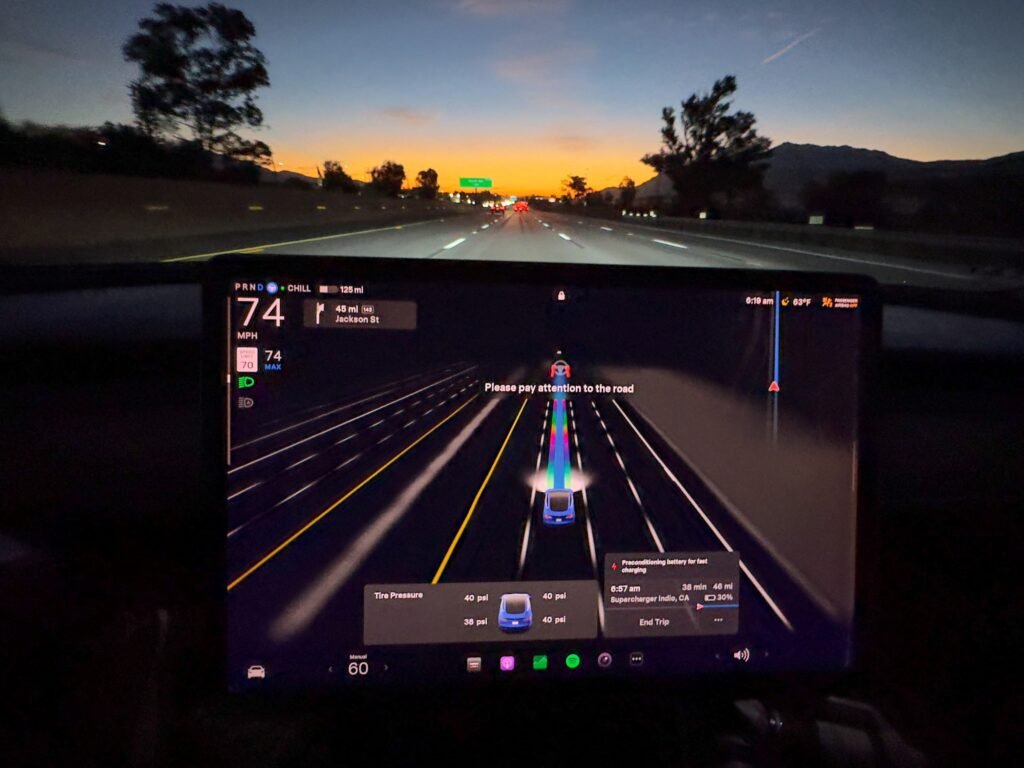
Mike Blake/REUTERS
- The California DMV sued Tesla, accusing the company of misleading consumers about its technology.
- In a hearing this week, the DMV argued Tesla’s “Full Self-Driving” technology is false advertising.
- The DMV wants to suspend Tesla’s license to manufacture and sell in the state for at least 30 days.
Tesla’s ability to sell cars in California hangs in the balance after a weeklong court hearing that ended on Friday.
The company’s terminology for its driver assistance technologies is under scrutiny.
California’s Department of Motor Vehicles sued Tesla in 2022 and is seeking to suspend Tesla’s ability to sell cars in the state for at least 30 days and award consumers monetary damages. Following the hearing, no final ruling has been made.
The DMV suit alleges that the company falsely advertised its “Full Self-Driving” and “Autopilot” driver assistance technologies, misleading consumers into thinking the cars were more autonomous than they were.
The hearing comes at a pivotal moment for the company. Its sales have slumped in the first half of 2025, and its brand took a hit earlier this year after CEO Elon Musk became the face of the White House DOGE Office. Protesters directed their anger at Tesla, organizing nationwide protests at Tesla dealerships in March.
Representatives for Tesla did not respond to a request for comment.
Attorney Matthew Benedetto, a member of Tesla’s legal team, told Administrative Judge Juliet E. Cox on Monday that the company never tried to conceal the fact that its vehicles cannot fully drive themselves and has always informed buyers that they “cannot fully rely” on FSD or Autopilot.
“Cars with Full Self-Driving capabilities are currently not capable of driving themselves,” Benedetto said again on Tuesday while cross-examining a witness brought to the stand by DMV.
The DMV said in its complaint that Tesla’s website advertised its driver assistance system on multiple occasions in 2021 and 2022 as being “designed to be able to conduct short and long-distance trips with no action required by the person in the driver’s seat.”
“From Home – All you will need to do is get in and tell your car where to go,” the complaint says, quoting from Tesla’s website.
“But vehicles equipped with those ADAS features could not, at the time of those advertisements, and cannot now, operate as autonomous vehicles,” Ailene Short, branch chief for the licensing department at the California DMV, wrote in the complaint.
Melanie Rosario, commander-sergeant of the DMV Valley Area Command, was called as a witness by attorneys representing the DMV and told the judge she found “conflicting information” in Tesla’s advertising of its FSD and Autopilot systems.
“To me, ‘Autopilot’ means it can drive itself or do things on its own,” Rosario said. She added that the word “autopilot” is “contradictory” when placed alongside instructions in the fine print that ask the driver to be attentive and prepared to take over the car at any moment.
Bryant Walker Smith, a voting member of the Society of Automotive and Aerospace Engineers, testified that the line separating driver assistance and automated driving features is “a dam that separates the land from the sea.”
“Every driver needs to know without ambiguity or doubt or any confusion an answer to this basic question: am I driving?” Smith said.
A witness for Tesla, Stephen Nowlis, a professor of marketing at Washington University in St. Louis, took the stand on Friday to present a survey he conducted. He told the judge the survey found that consumers were “not confused” by Tesla’s terminology.
The survey, which Tesla commissioned at a cost, did not take into account every person who may come into contact with a Tesla car.
Eric Goldman, a professor at Santa Clara University School of Law who studies advertising law, told Business Insider that the DMV’s lawsuit is “very high-stakes” for Tesla.
“Even if Tesla defeats this lawsuit, it’s not in the legal clear — it’s still going to have to answer in court for its claims elsewhere,” Goldman said.
Tesla’s driver assistance technologies are facing multiple other legal challenges.
A wrongful death complaint against Tesla in Florida says a Tesla driver was using Autopilot and briefly looked away when his vehicle T-boned a parked SUV, killing a 22-year-old woman. Tesla argued that the driver was responsible for the crash.
Separately, Tesla is facing a class-action lawsuit and an ongoing investigation by the National Highway Traffic Safety Administration over the phenomenon known as “phantom braking,” which is when the vehicle suddenly slams on the brakes for no reason, often at high speeds.

